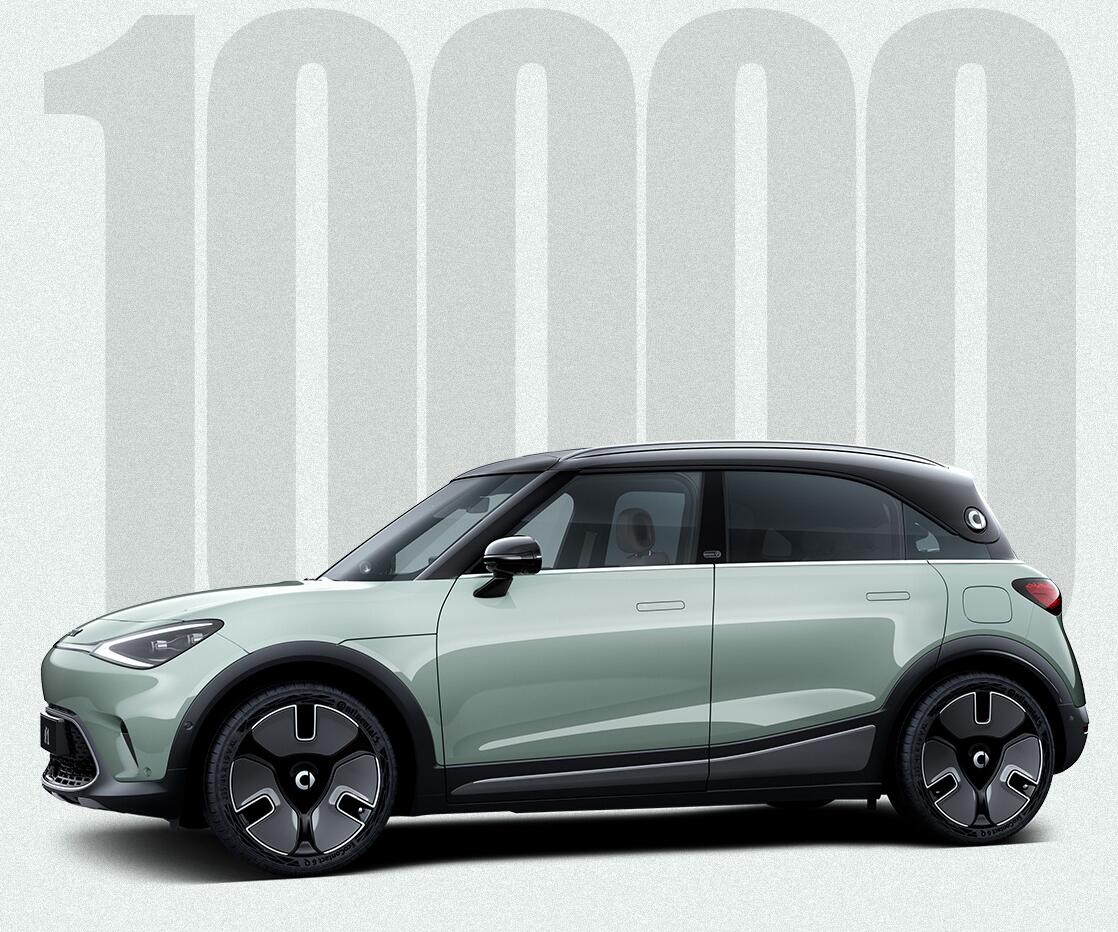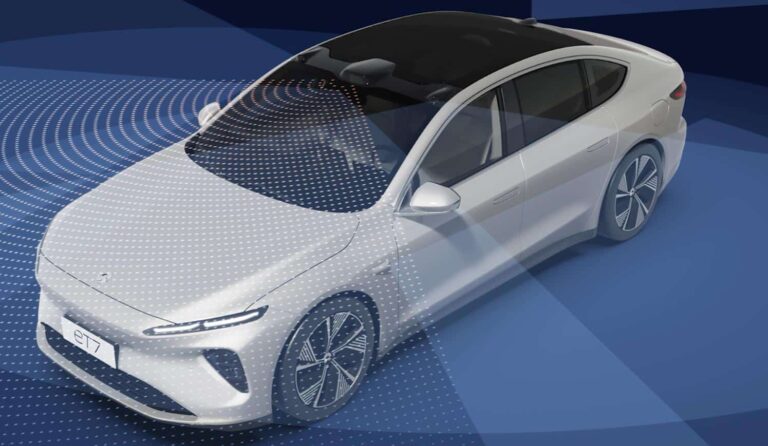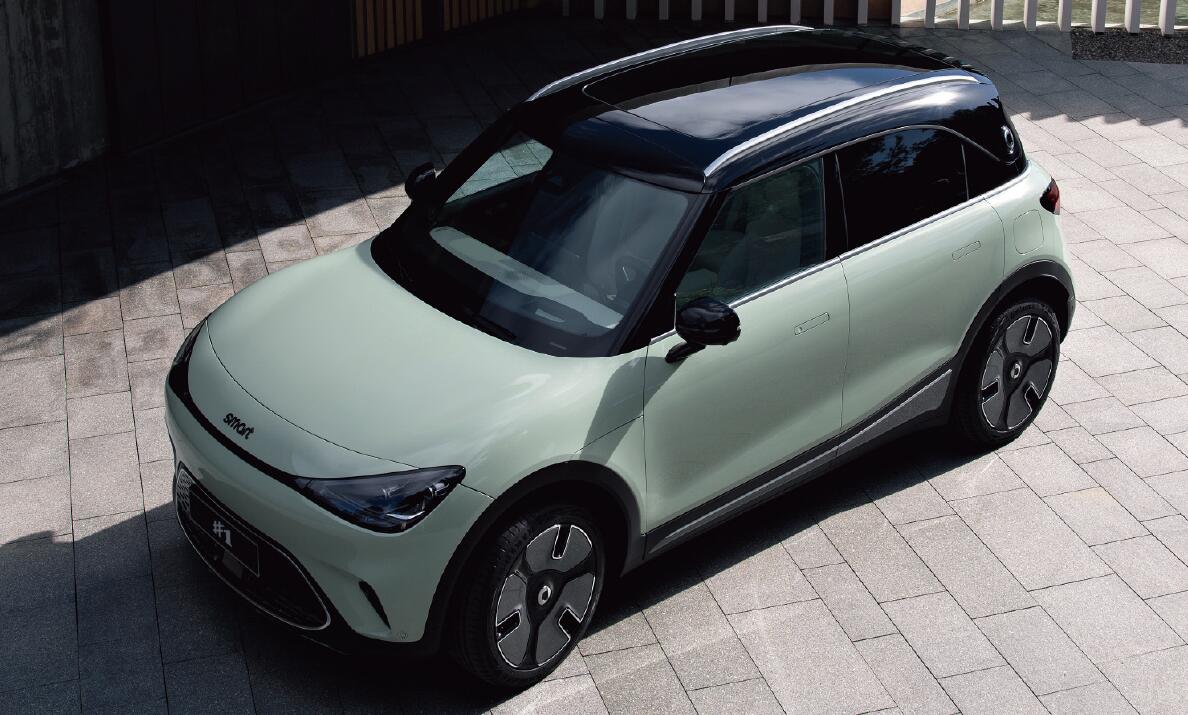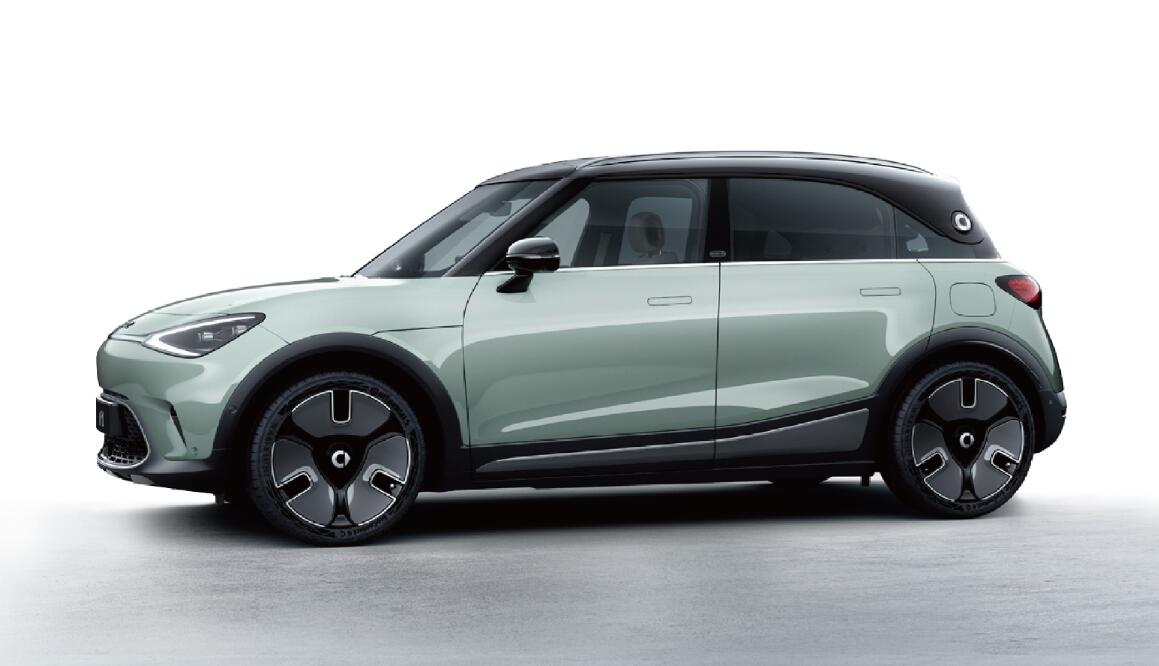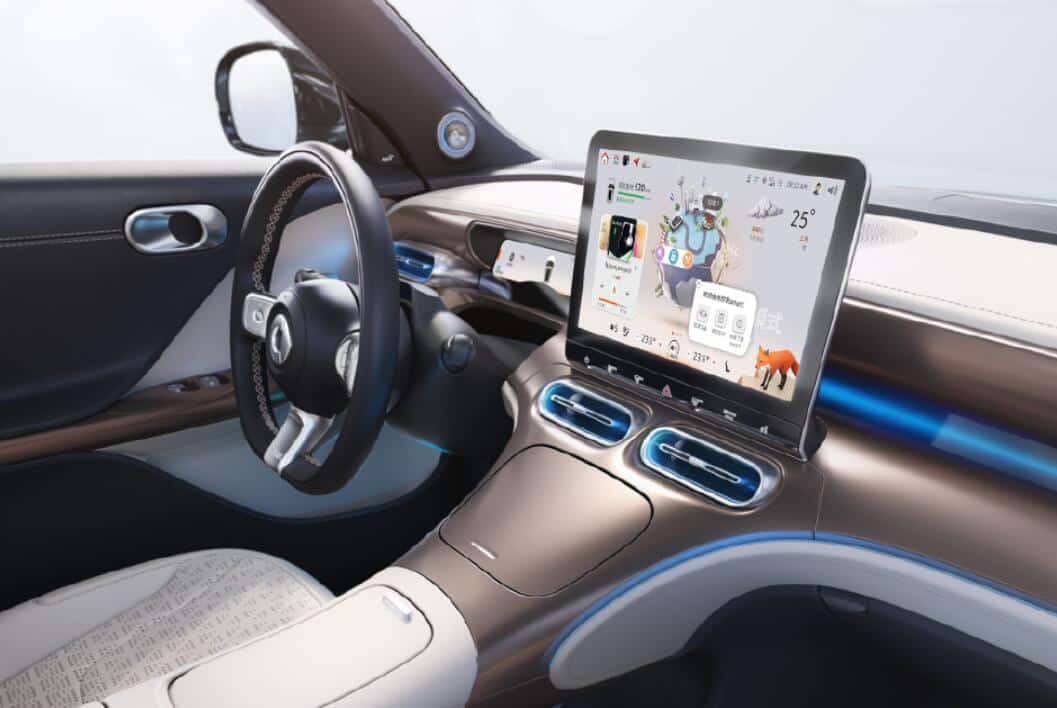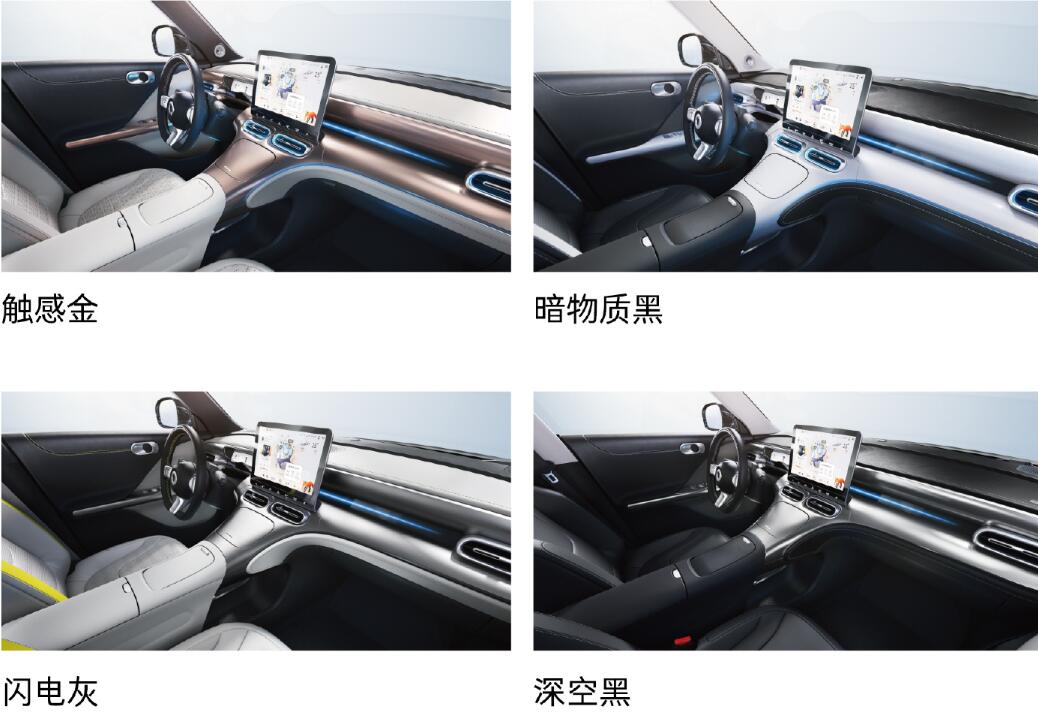The Smart #1 is the first production model unveiled after the electrification transformation of the Smart brand, with a pre-sale price range of RMB 190,000 ($29,000) - 230,000 after subsidies.
(Image credit: Smart China)
The Smart #1 SUV, created by Geely and Mercedes-Benz, is available in China and has achieved a good initial acceptance.
The Smart #1 received more than 10,000 orders after 24 hours of opening for pre-orders, Smart China announced today.
The model went on pre-sale in China on the evening of April 25 Beijing time and is the first production model to be unveiled after the electrification transformation of the Smart brand, with a pre-sale price range of RMB 190,000 ($29,000) - 230,000 after subsidies.
It was designed by Mercedes-Benz, with engineering led by the Smart R&D team, and is based on Geely's SEA (Sustainable Experience Architecture) architecture.
The Smart #1 is positioned as an all-electric compact SUV, but is the largest Smart ever, measuring 4,270 mm in length, 1,822 mm in width and 1,636 mm in height, with a wheelbase of 2,750 mm.
The model has frameless doors, hidden door handles and a wind resistance coefficient of just 0.29 Cd.
It has a 12.8-inch floating 1080p resolution center screen and a 9.2-inch instrument screen, and a 13-speaker Beats audio system inside.
The air vents of the model include a lot of ring design elements, together with 64-color interior ambient lighting that supports 20 levels of brightness adjustment.
It features a rear electric motor with 200 kW of maximum power and 343 Nm of peak torque, and a 0-100km/h acceleration time of 6.7 seconds.
The Smart #1 is equipped with ADAS Intelligent Assisted Driving System, which supports Adaptive Cruise Control, Lane Keeping Assist, Blind Spot Monitoring System, Traffic Congestion Assist and OTA upgrades.
The model is equipped with a 66-kWh lithium-ion battery and has a maximum CLTC range of 560 km.
In slow charging mode, it takes 7.5 hours to charge to 80 percent, while in DC overcharge mode it can be charged to 80 percent in 30 minutes with a 150kW charging pile.
